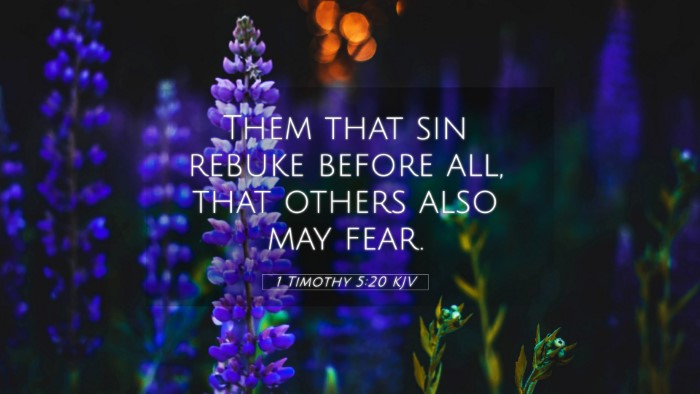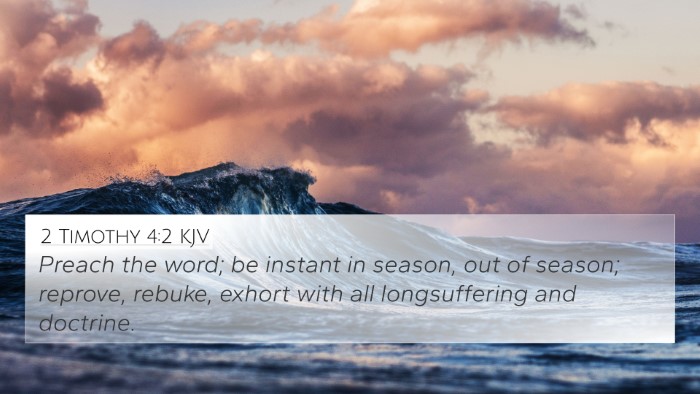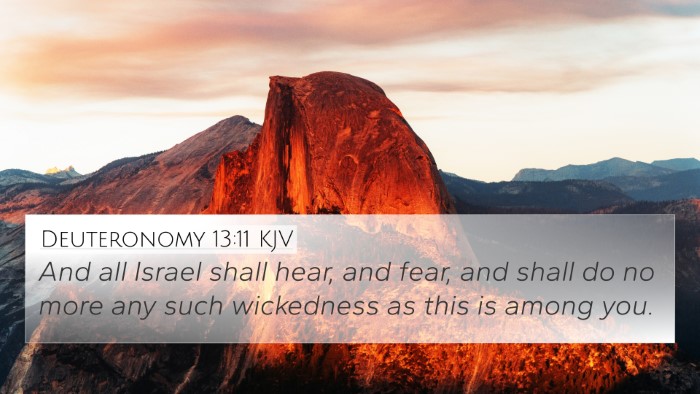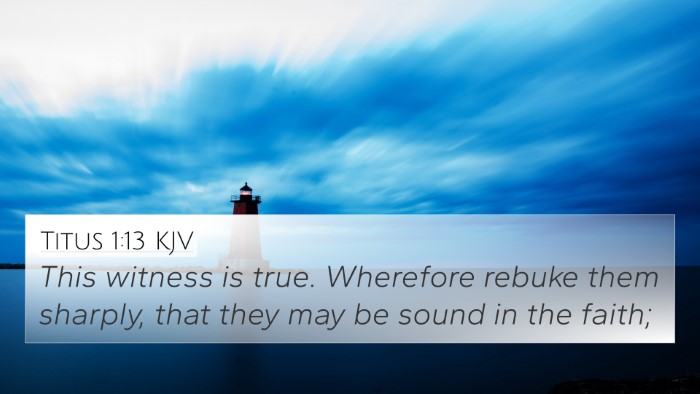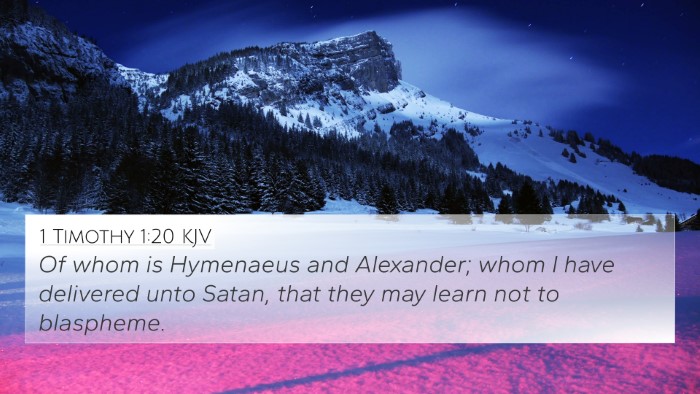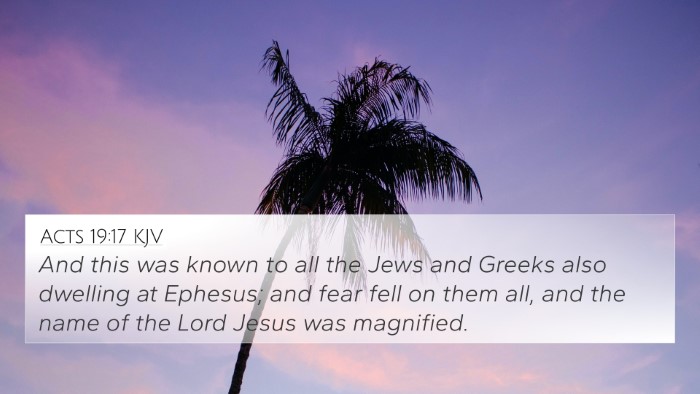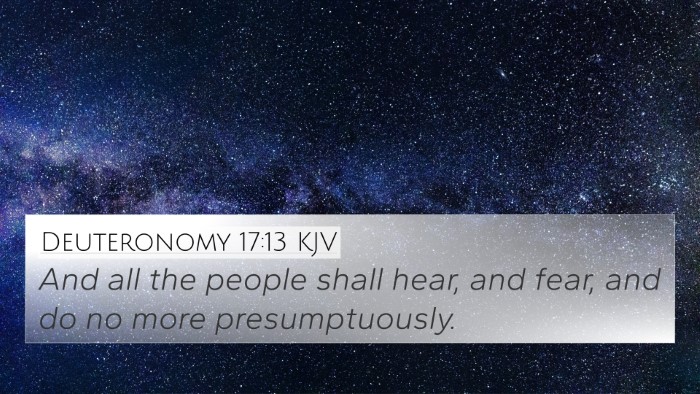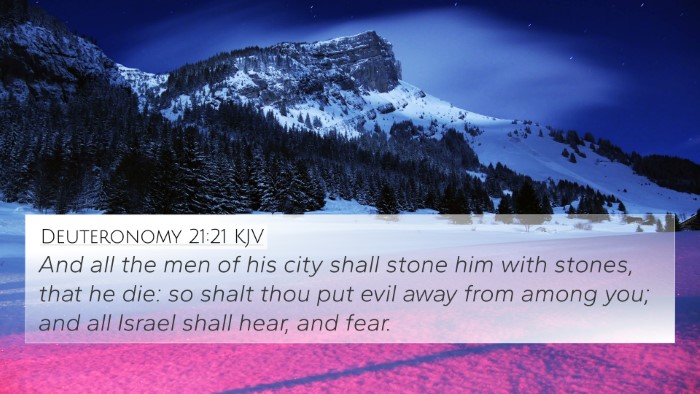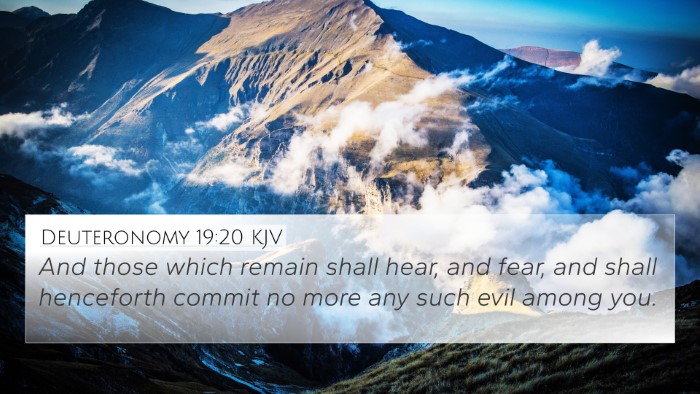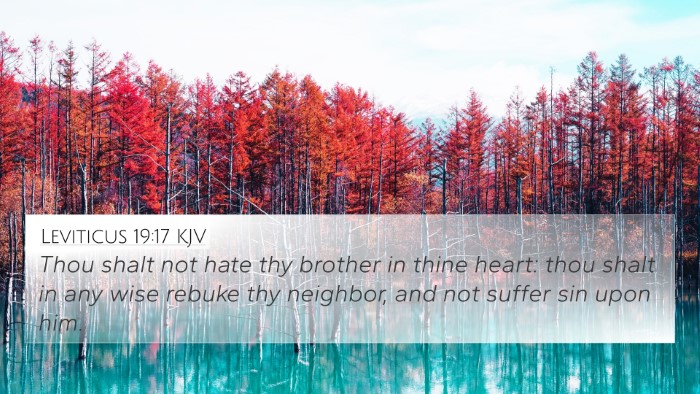Understanding 1 Timothy 5:20
Bible Verse: 1 Timothy 5:20 - "Those who persist in sin, rebuke in the presence of all, so that the rest also will be fearful of sinning."
Meaning and Interpretation
This verse addresses the serious nature of sin and the necessary approach that should be taken in dealing with those who are steadfast in their wrongdoing. The Apostle Paul, in his letter to Timothy, emphasizes the importance of public rebuke for ongoing sin amongst leaders and the church community.
Commentary Insights
The interpretations provided by various commentators offer valuable insights into the meaning of this verse, highlighting the principles of accountability, correction, and the fear of God:
- Matthew Henry: Henry outlines the imperative nature of correction within the church, emphasizing that public rebuke is necessary not only for the sinner but also as a solemn warning to the congregation. He believes this action serves to uphold the moral standards of the church and maintains the reverence for God's laws.
- Albert Barnes: Barnes underscores the importance of maintaining order and discipline in church affairs. He notes that public rebuke aims to evoke a sense of seriousness regarding sin, deterring others from following in the same path. The belief is that by confronting the sinner openly, others may be influenced to avoid sin.
- Adam Clarke: Clarke provides a perspective on the significance of this verse in relation to church leadership and moral conduct. He suggests that the responsibility of leaders includes not only teaching but also the need for correction in cases of blatant sin. This upholds the integrity of the scripture and the church as a whole.
Cross-Referencing Biblical Texts
In exploring the thematic connections between 1 Timothy 5:20 and other scriptures, we can identify several relevant cross-references that provide depth to our understanding:
- Leviticus 19:17: Encourages rebuke in love, highlighting the importance of correcting a neighbor to prevent sin.
- Galatians 6:1: Encourages restoring a sinner gently, pointing to the necessity of confronting sin within the church community.
- Titus 1:13: Stresses the need for rebuke in order to safeguard the sound doctrine within the church.
- James 5:20: Discusses bringing someone back from the wandering of their ways, aligning with the restorative purpose of rebuke.
- 2 Timothy 4:2: Commands Timothy to preach the word, being ready to reprove and rebuke as part of sound ministry.
- Psalm 119:21: Describes God's rebuke against the proud and those who stray from His commandments, showing the divine perspective on sin.
- Proverbs 27:5: Suggests that open rebuke is better than hidden love, reinforcing the importance of honesty in correction.
Thematic Bible Verse Connections
The themes of accountability, correction, and the fear of God resonate through these connected verses, illustrating the importance of dealing with sin openly among believers.
Concluding Thoughts
1 Timothy 5:20 serves as a reminder of the high standards within the community of believers. The necessity of addressing sin publicly not only aims to correct the individual but also aims to instill a reverent fear of God among others. This complex balance of love, discipline, and restoration is crucial for maintaining the integrity of the Christian faith and the church body.
Further Studies on Cross-Referencing
Understanding how to utilize Bible cross-references can enhance one's study of scripture deeply, providing clarity and connections that may not be immediately apparent. Consider using tools for Bible cross-referencing and Bible concordance to navigate these relationships.
Many find that engaging in comparative Bible verse analysis offers profound insights into the interconnectedness of God’s Word, yielding transformative understanding. By exploring the links between the Prophets and Apostolic teachings, as well as themes drawn from the Psalms, readers can deepen their scriptural grasp.

